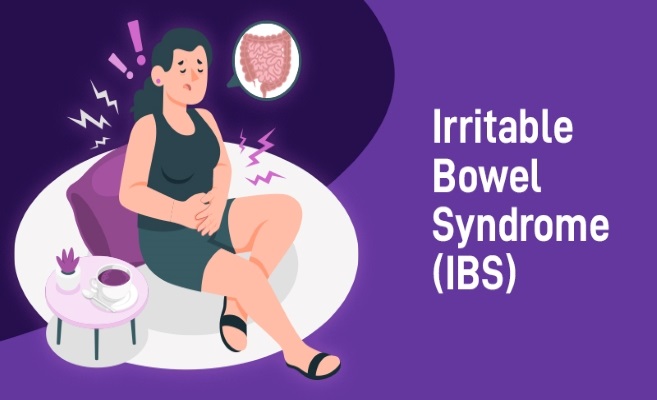What Is Irritable Bowel Syndrome (IBS) and Why Women Are More Likely To Have It

News Mania Desk/ Agnibeena Ghosh/6th July 2024
Irritable Bowel Syndrome (IBS) is a common gastrointestinal disorder that affects a significant portion of the population, with women being disproportionately impacted. This chronic condition can cause discomfort and disrupt daily life due to its unpredictable nature and varied symptoms.
What is IBS?
IBS is characterized by symptoms such as abdominal pain, bloating, diarrhea, constipation, or a combination of these, without any apparent structural abnormalities in the digestive system. The exact cause of IBS remains unclear, but factors like abnormal intestinal muscle contractions, inflammation, and changes in gut bacteria may contribute to its development.
Why Does IBS Affect Women More?
While IBS can affect anyone regardless of gender, studies consistently show that women are more likely to experience this condition. Several factors contribute to this gender disparity:
- Hormonal Influence: Hormonal changes during the menstrual cycle, pregnancy, or menopause can exacerbate IBS symptoms. Fluctuations in estrogen and progesterone levels affect gut motility and sensitivity, contributing to symptoms like abdominal pain and bloating.
- Psychosocial Factors: Women tend to be more prone to stress and anxiety, which are known triggers for IBS symptoms. The gut-brain axis plays a significant role in IBS, where emotional distress can manifest as physical symptoms in the digestive tract.
- Sociocultural Aspects: Cultural expectations and societal roles may influence how women perceive and report symptoms. Women are more likely to seek medical help for gastrointestinal symptoms compared to men, leading to higher diagnosis rates.
- Dietary Habits: Differences in dietary choices and eating patterns between men and women may also contribute. Certain foods or food intolerances can trigger IBS symptoms, and women may be more susceptible due to their dietary preferences.
- Visceral Hypersensitivity: Women tend to have heightened visceral sensitivity, meaning they may perceive pain or discomfort more acutely in their gut, even with normal digestive processes.
Managing IBS
While there is no cure for IBS, management strategies focus on symptom relief and improving quality of life:
- Dietary Modifications: Avoiding trigger foods such as dairy, caffeine, and artificial sweeteners, and maintaining a balanced diet with high fiber content can alleviate symptoms.
- Stress Management: Techniques like yoga, meditation, and deep breathing exercises can help manage stress, reducing its impact on gut health.
- Medications: Depending on symptoms, medications like antispasmodics, laxatives, or antidepressants may be prescribed to alleviate pain, regulate bowel movements, or manage mood.
- Lifestyle Changes: Regular exercise, adequate sleep, and avoiding smoking and excessive alcohol consumption can contribute to overall gut health.
Conclusion
Understanding why IBS predominantly affects women involves considering a complex interplay of biological, hormonal, psychological, and sociocultural factors. By raising awareness and providing effective management strategies, healthcare providers can empower women to better manage their symptoms and improve their quality of life despite living with IBS.






